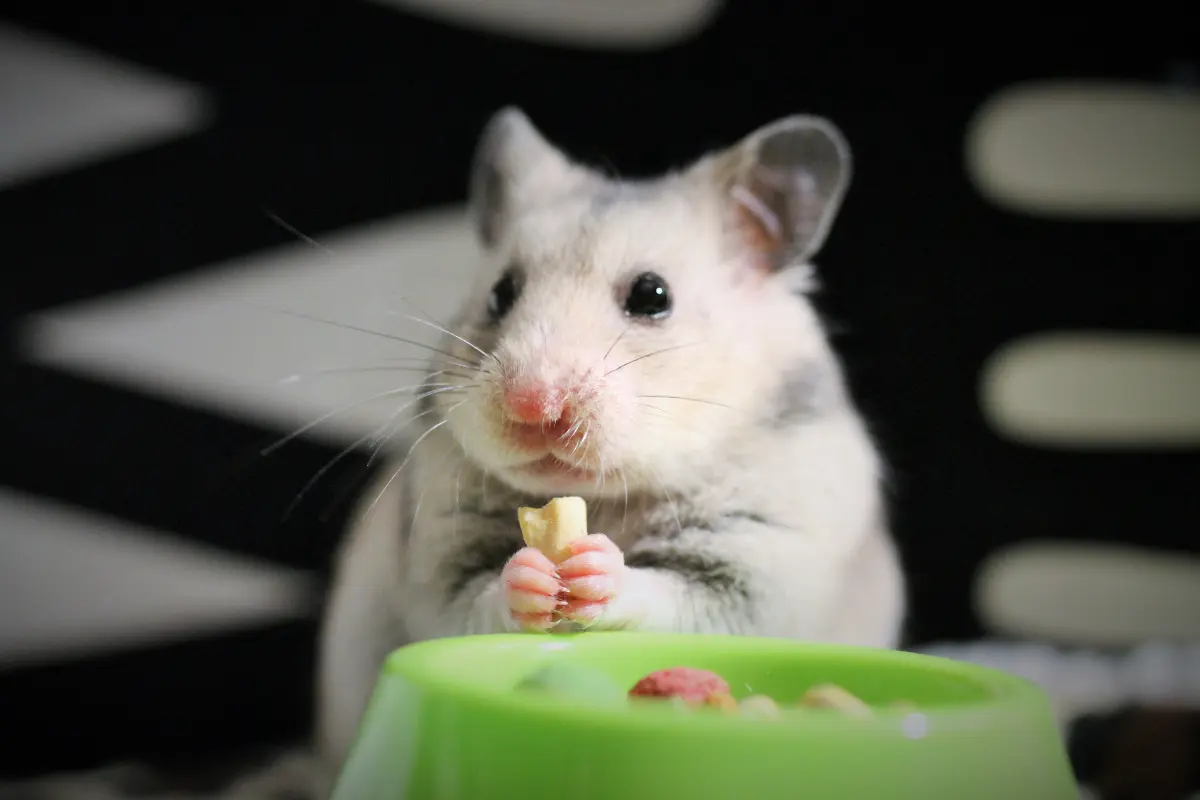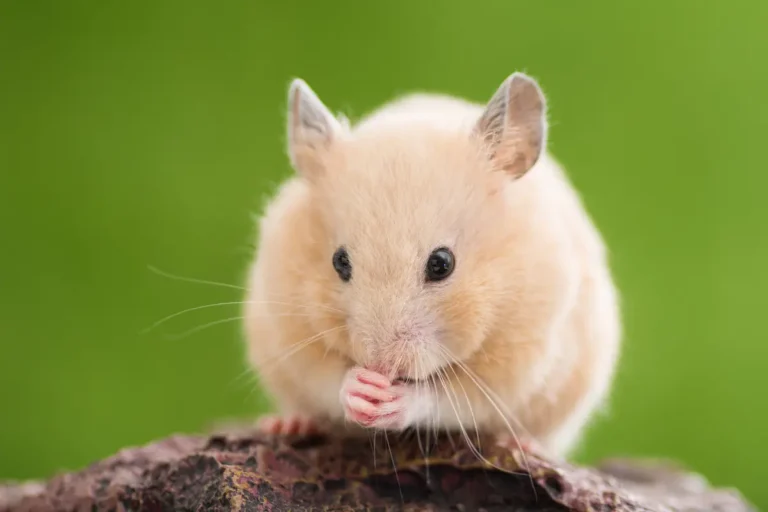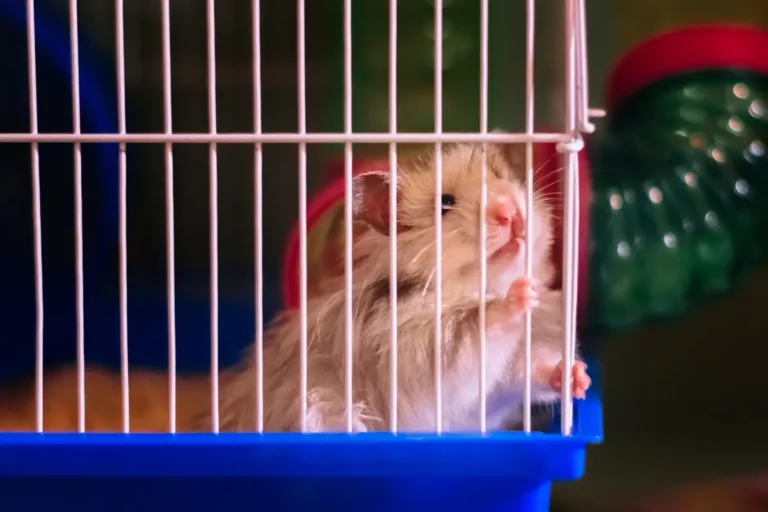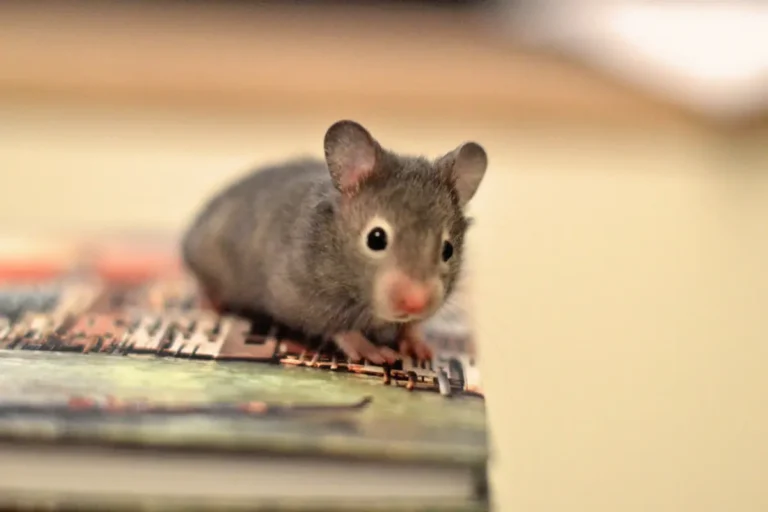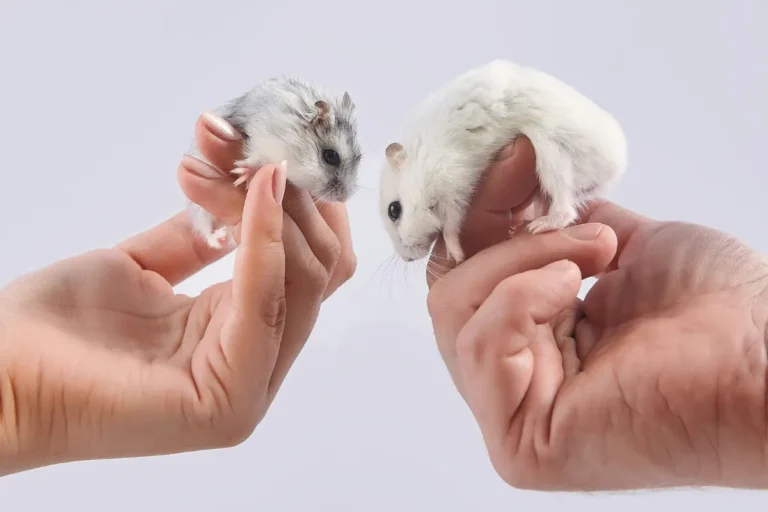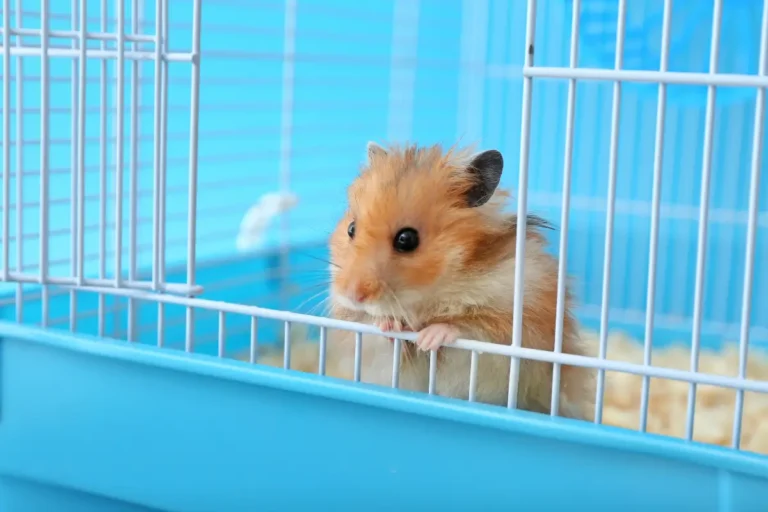Feeding Your Hamster: A Balanced Diet Guide
A balanced diet is fundamental to keeping your hamster healthy, active, and happy. Hamsters, being omnivores, thrive on a varied diet that includes both plant-based and animal-based foods.
In the wild, hamsters consume a mix of seeds, grains, insects, and plants. This varied diet provides the necessary nutrients to fuel their high-energy lifestyles. A well-balanced diet for your pet hamster will:
- Boost Energy: Carbohydrates and fats keep them active and alert.
- Support Digestive Health: Fiber from grains and vegetables prevents constipation and other digestive issues.
- Promote a Healthy Weight: Managing portions and offering a variety of foods prevents obesity and related health conditions, especially in dwarf hamster species prone to diabetes.
The Foundation of a Hamster’s Diet: Commercial Hamster Food
Commercial hamster food should make up 75-80% of your hamster’s diet. This food is specifically formulated to meet the basic nutritional needs of hamsters, providing the right mix of proteins, fats, carbohydrates, vitamins, and minerals. Opt for high-quality brands without artificial colors, added sugars, or preservatives, as these can lead to health issues over time.
Key Components of Commercial Hamster Mixes:
- Nutritional Balance: The ideal mix contains about 14-17% protein, 4-7% fat, and 45-60% carbohydrates.
- Pellets vs. Seed Mixes: Pellets ensure balanced nutrition in each bite, while seed mixes offer variety but may encourage selective eating.
- Whole Ingredients: Look for whole grains, seeds, and sometimes dried vegetables that can mirror their natural foraging diet.
Supplementing with Fresh Foods
Fresh foods can make up 20-25% of your hamster’s diet, offering additional vitamins, minerals, and hydration. Fresh fruits, vegetables, and protein sources contribute to a varied and nutritious meal plan.
Safe Fruits for Hamsters (2–3 times per week, in small portions):
- Apples (seeds removed)
- Banana
- Blueberries, Strawberries, Raspberries
- Pear
- Melon
- Peach (pit removed)
Tip: Since fruits contain sugar, limit the servings, especially for dwarf hamsters prone to diabetes. Offer only a raisin-sized portion to keep sugar intake low.
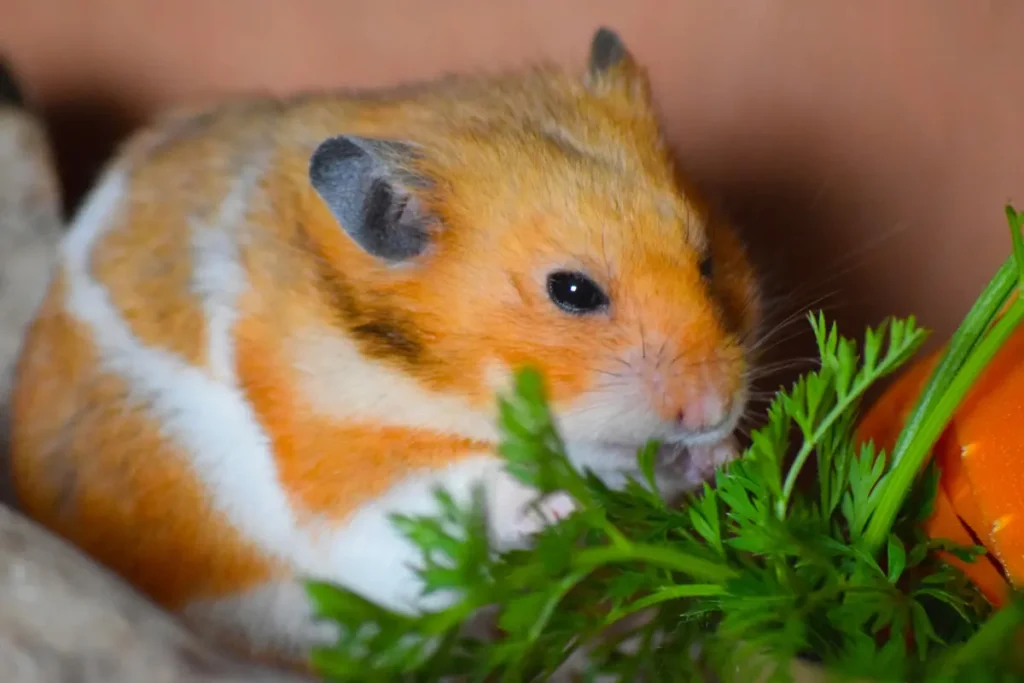
Safe Vegetables for Hamsters (daily, in small portions):
- Broccoli
- Cauliflower
- Carrot (small pieces due to sugar content)
- Cucumber
- Romaine Lettuce
- Kale and Spinach
- Pumpkin
- Sweet Potato (cooked)
Vegetables should be fresh and washed thoroughly to avoid pesticide exposure. Introduce each new vegetable slowly to ensure it agrees with your hamster’s digestive system.
Protein Sources (1–2 times a week, in tiny amounts):
- Cooked Chicken (unseasoned, plain)
- Hard-Boiled Egg (small pieces)
- Mealworms and Crickets
Protein is crucial for muscle development, but too much can strain the kidneys, especially in older hamsters. Include proteins sparingly to prevent kidney issues over time.
Treats and Extras: Grains, Seeds, and Herbs
Hamsters love occasional treats like grains, seeds, and herbs, but these should be given in moderation.
- Grains and Seeds: Oats, barley, quinoa, brown rice, sunflower seeds (unsalted), and pumpkin seeds.
- Herbs: Parsley, basil, dill, and thyme add flavor and a few extra nutrients to their diet.
Favorite Treats
Hamsters have their favorite treats, and they may prefer certain foods depending on their species. Here’s a quick reference:
| Hamster Species | Favorite Foods |
|---|---|
| Syrian Hamsters | Sunflower seeds, pumpkin seeds, carrots, apples, mealworms |
| Russian Dwarf Hamsters | Sunflower seeds, broccoli, blueberries, millet |
| Robo Hamsters | Millet, mealworms, cucumber, carrots |
| Winter White Hamsters | Broccoli, cauliflower, strawberries, sunflower seeds |
| Teddy Bear Hamsters | Sunflower seeds, cooked chicken, apples |
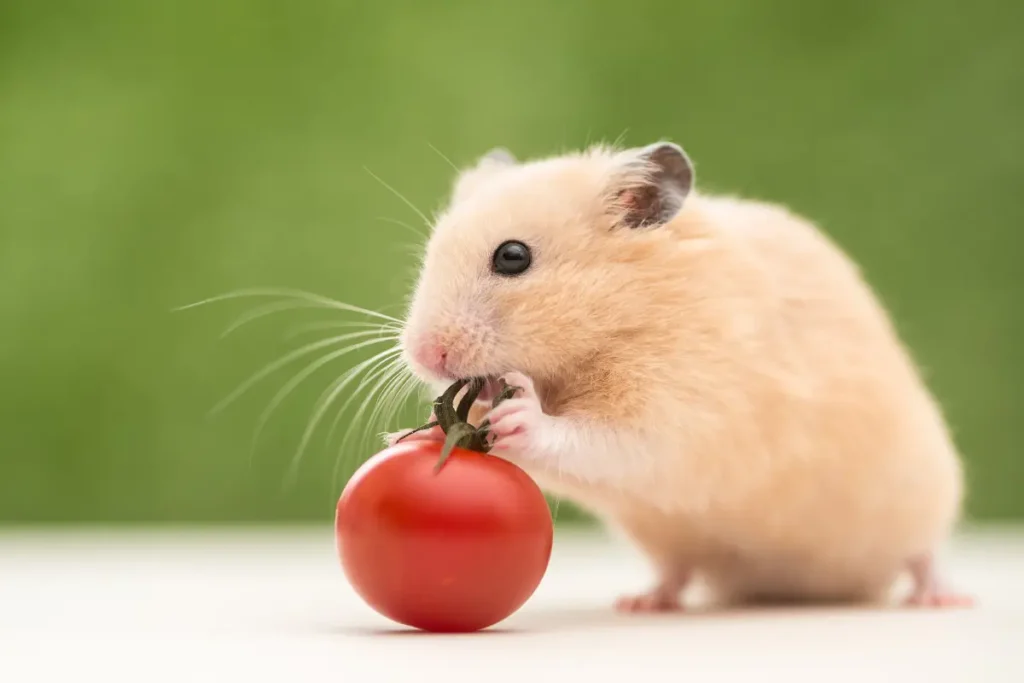
Foods to Avoid: Dangerous and Toxic Options
Several foods are unsafe for hamsters and can lead to serious health issues. Here’s what to keep out of their diet:
- Chocolate: Contains theobromine, which is toxic and can cause severe reactions.
- Onions, Garlic, and Chives: Damage red blood cells and cause digestive distress.
- Citrus Fruits (e.g., Oranges, Lemons): High acidity can lead to stomach irritation.
- Avocado: Contains persin, a toxin harmful to many small animals.
- Raw Potatoes and Eggplant: Solanine content can cause digestive issues and other health problems.
- Rhubarb: Contains oxalic acid, which is highly toxic and can lead to kidney failure.
- Raw Kidney Beans: Contain lectins that are toxic when uncooked.
- Processed and Sugary Foods: These can lead to obesity, diabetes, and digestive issues.
- Salty Foods: Excessive salt can cause dehydration, kidney problems, and high blood pressure.
Feeding Tips for a Healthy Hamster
- Portion Control: Hamsters have small stomachs, so overfeeding can lead to obesity. One tablespoon of commercial food daily is generally enough.
- Consistency and Variety: Maintain variety by rotating safe fresh foods each week to keep your hamster engaged and ensure balanced nutrition.
- Clean Water: Provide fresh water daily in a water bottle with a sipper tube to prevent contamination. Clean the bottle regularly to avoid bacterial buildup.
- Remove Uneaten Food: Fresh foods spoil quickly, so remove any leftovers within a few hours to prevent mold or bacterial growth.
- Observe Dietary Preferences: Each hamster has individual preferences. Observe what they enjoy, but balance their diet accordingly.
Sample Weekly Meal Plan for a Syrian Hamster
Here’s a sample week to illustrate a balanced, varied diet for a Syrian hamster:
| Day | Commercial Mix | Fresh Food (Portion) | Protein |
|---|---|---|---|
| Monday | Yes | Carrot (small piece) | None |
| Tuesday | Yes | Apple (seed removed, small piece) | Cooked Chicken (tiny bit) |
| Wednesday | Yes | Broccoli (small floret) | None |
| Thursday | Yes | Blueberries (2 small pieces) | Hard-Boiled Egg (small bit) |
| Friday | Yes | Cucumber (small piece) | None |
| Saturday | Yes | Strawberry (small piece) | Mealworm (1–2) |
| Sunday | Yes | Romaine Lettuce (small piece) | None |
Keeping Your Hamster Healthy and Happy
Ensuring your hamster’s diet is diverse, nutritious, and balanced will support their health, energy, and happiness. Combining commercial food with fresh fruits, vegetables, and occasional proteins replicates their natural diet and helps prevent nutritional issues.
Always keep portions small and varied, avoid harmful foods, and monitor your pet’s health and behavior. A happy, well-fed hamster is a joy to care for and watch as they thrive.
